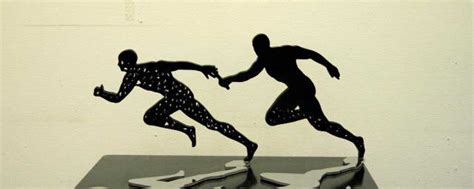```html
Sports and politics have been intertwined throughout history, with athletes, teams, and events often becoming platforms for expressing political views, promoting social change, or serving as symbols of national identity. Let's delve into some notable examples of political phenomena within the realm of sports:
One of the most prominent examples of political involvement in sports is the Olympic Games boycotts. Throughout history, various countries have boycotted the Olympics for political reasons. For instance, the United States led a boycott of the 1980 Moscow Olympics to protest the Soviet Union's invasion of Afghanistan. In retaliation, the Soviet Union and other Eastern Bloc countries boycotted the 1984 Los Angeles Olympics. These boycotts not only affected the athletes but also had broader geopolitical implications, showcasing the intersection of sports and international politics.
In postapartheid South Africa, Nelson Mandela utilized rugby, a sport historically associated with the white minority, to promote reconciliation and national unity. During the 1995 Rugby World Cup hosted in South Africa, Mandela famously donned the jersey of the predominantly white South African national rugby team, the Springboks, signaling his support for the team. This gesture played a significant role in bridging racial divides and fostering a sense of national pride and cohesion during a critical period of transition in South Africa's history.
In recent years, American football player Colin Kaepernick sparked controversy by kneeling during the national anthem before NFL games to protest police brutality and racial injustice. His peaceful protest ignited a nationwide debate on race relations and the role of athletes in addressing social issues. Kaepernick faced backlash from some fans, team owners, and politicians, illustrating the complex dynamics between sports, patriotism, and activism in the United States.

During the Cold War, table tennis, or ping pong, served as an unlikely tool for diplomacy between the United States and China. In 1971, American table tennis players were invited to compete in an exhibition match in China, marking the first official interaction between the two countries in decades. This event, dubbed "ping pong diplomacy," helped pave the way for President Richard Nixon's historic visit to China the following year, leading to a significant thaw in SinoAmerican relations.
The FIFA World Cup, the premier international football tournament, often becomes embroiled in political controversies during the host selection process. Allegations of corruption, bribery, and human rights abuses have plagued several World Cup bidding processes, raising questions about the ethical implications of awarding hosting rights to certain countries. The intersection of sports and politics in the World Cup showcases the power dynamics and geopolitical considerations inherent in global sporting events.
These examples underscore the multifaceted relationship between sports and politics, illustrating how athletes, teams, and sporting events can serve as powerful platforms for political expression, social change, and diplomatic endeavors. While sports have the potential to transcend boundaries and unite people, they are also subject to the influence of political forces, highlighting the interconnectedness of sports and society.